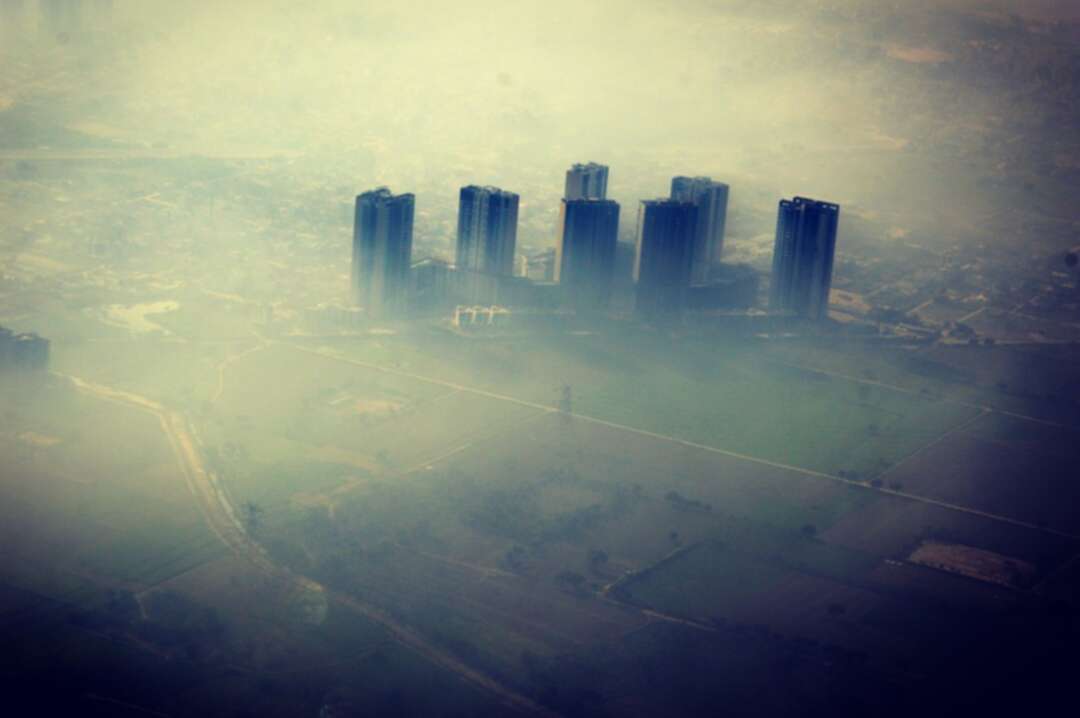-
COP26 President says China and India must explain themselves to climate-vulnerable nations

The BBC reported that COP26 President Alok Sharma has said as the summit ends, China and India will have to explain themselves to climate-vulnerable nations.
It said that this comes after the two nations pushed for the language on coal to change from "phase out" to "phase down" in the deal agreed in Glasgow.
But Mr Sharma insisted the "historic" deal "keeps 1.5C within reach".
It is the first ever climate deal that plans explicitly to reduce coal - the worst fossil fuel for greenhouse gases.
The summit, which was initially due to end on Friday, had to go into overtime before a deal was agreed late on Saturday - following the late intervention from India to water down the language on coal.

Later on Sunday, Prime Minister Boris Johnson will join Mr Sharma to give a Downing Street news conference on the outcome of the climate summit.
Read more: Report says air pollution in Europe still killing 300,000 a year
Mr Sharma said the deal struck in the Glasgow climate pact was a "fragile win" and urged China and India to "justify" their actions to nations that are more vulnerable to the effects of global warming.
He told BBC One's Andrew Marr Show: "I am going to be calling on everyone to do more.
"But as I said, in relation to what happened yesterday, China and India will have to explain themselves and what they did to the most climate-vulnerable countries in the world."
Mr Sharma, who had to hold back tears as he closed the summit following the late intervention, added: "I wouldn't describe what we did yesterday as a failure - it is a historic achievement."
One of the main goals set out by COP26 was to ensure we do not go above 1.5C by 2100 - which scientists have said would limit the worst impacts of climate change.
As part of the agreement struck in Glasgow, countries will meet next year to pledge further major carbon cuts with the aim of reaching the 1.5C goal. Current pledges, if fulfilled, will only limit global warming to about 2.4C.
Read more: Mohammed bin Salman announces establishment of first nonprofit city in the world
Scientists have warned if global temperatures rise by more than 1.5C the Earth is likely to experience severe effects such as millions more people being exposed to extreme heat. The world is currently 1.2C warmer than it was in the 19th Century.
The final deal agreed on has been met with some criticism.
Ed Miliband, shadow business and energy secretary, told the Sky News' Trevor Phillips programme that "keeping 1.5 degrees alive is frankly in intensive care".
He said the world's task was to halve global emissions by 2030 and said that despite some progress in Glasgow "the world is only probably about 20% or 25% of the way to that goal".
But Mr Miliband commended Mr Sharma on his efforts.
The UN's climate change chief, Patricia Espinosa, described the mention of coal and fossil fuels as a "huge step forward".
But she added that "we need to also balance out the social consequences for so many people around the world, especially in the poor countries".
Lord Deben, the chairman of the Climate Change Committee, told BBC Radio 4's The World This Weekend that the UK should negotiate future trade deals with "some congruence with the world battle on climate change" - pointing to Australia as an example.
Read more: South Africa’s Frederik Willem de Klerk to be cremated on Nov. 21 in private ceremony
"I hope our government will also recognise that you really cannot sign trade deals on the basis that Australia can do nothing to insist on their farmers meeting the challenge of climate change and then export their goods to Britain," he said.
He added that India's push to change the language on coal was a "misuse" of the process.
A report by the Climate Action Tracker group has calculated that at the current rate, the world is heading for 2.4C of warming by 2100.
If no action was taken, scientists believe global warming could exceed 4C in the future. This could lead to devastating heatwaves, droughts, extreme rainfall and floods. As a result, millions of people could lose their homes to rising sea levels.
In addition to this, the change in climate could lead to irreversible damage to our ecosystem - with the mass extinction of animal and plant species.
Source: BBC
You May Also Like
Popular Posts
Caricature
BENEFIT Sponsors BuildHer...
- April 23, 2025
BENEFIT, the Kingdom’s innovator and leading company in Fintech and electronic financial transactions service, has sponsored the BuildHer CityHack 2025 Hackathon, a two-day event spearheaded by the College of Engineering and Technology at the Royal University for Women (RUW).
Aimed at secondary school students, the event brought together a distinguished group of academic professionals and technology experts to mentor and inspire young participants.
More than 100 high school students from across the Kingdom of Bahrain took part in the hackathon, which featured an intensive programme of training workshops and hands-on sessions. These activities were tailored to enhance participants’ critical thinking, collaborative problem-solving, and team-building capabilities, while also encouraging the development of practical and sustainable solutions to contemporary challenges using modern technological tools.
BENEFIT’s Chief Executive Mr. Abdulwahed AlJanahi, commented: “Our support for this educational hackathon reflects our long-term strategic vision to nurture the talents of emerging national youth and empower the next generation of accomplished female leaders in technology. By fostering creativity and innovation, we aim to contribute meaningfully to Bahrain’s comprehensive development goals and align with the aspirations outlined in the Kingdom’s Vision 2030—an ambition in which BENEFIT plays a central role.”
Professor Riyadh Yousif Hamzah, President of the Royal University for Women, commented: “This initiative reflects our commitment to advancing women in STEM fields. We're cultivating a generation of creative, solution-driven female leaders who will drive national development. Our partnership with BENEFIT exemplifies the powerful synergy between academia and private sector in supporting educational innovation.”
Hanan Abdulla Hasan, Senior Manager, PR & Communication at BENEFIT, said: “We are honoured to collaborate with RUW in supporting this remarkable technology-focused event. It highlights our commitment to social responsibility, and our ongoing efforts to enhance the digital and innovation capabilities of young Bahraini women and foster their ability to harness technological tools in the service of a smarter, more sustainable future.”
For his part, Dr. Humam ElAgha, Acting Dean of the College of Engineering and Technology at the University, said: “BuildHer CityHack 2025 embodies our hands-on approach to education. By tackling real-world problems through creative thinking and sustainable solutions, we're preparing women to thrive in the knowledge economy – a cornerstone of the University's vision.”
opinion
Report
ads
Newsletter
Subscribe to our mailing list to get the new updates!






















